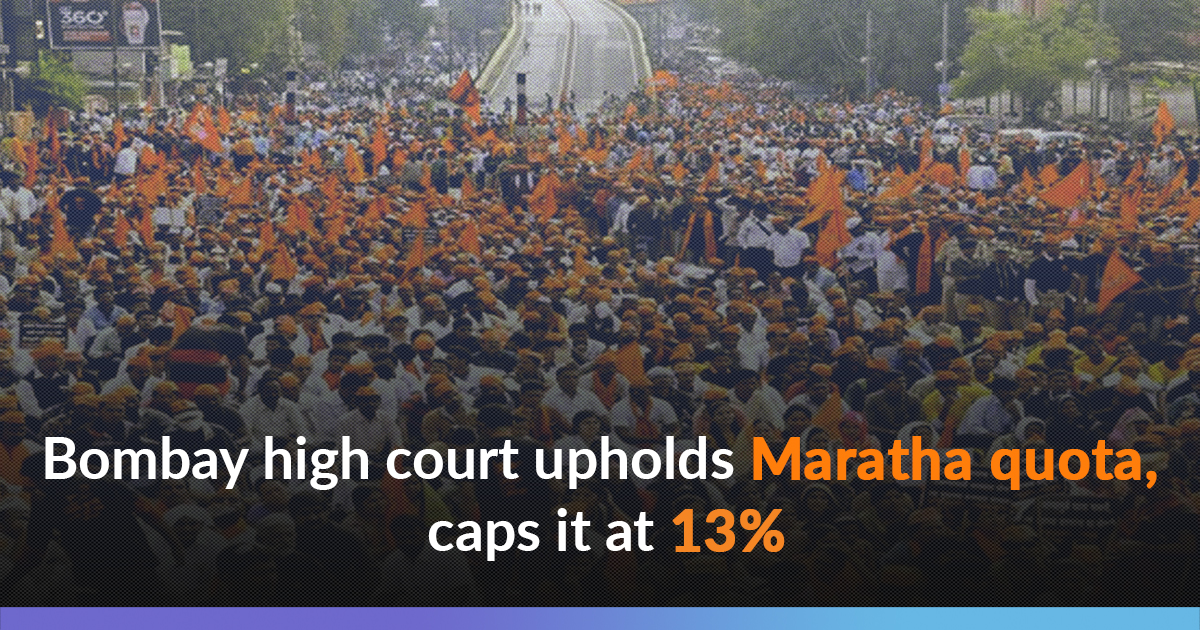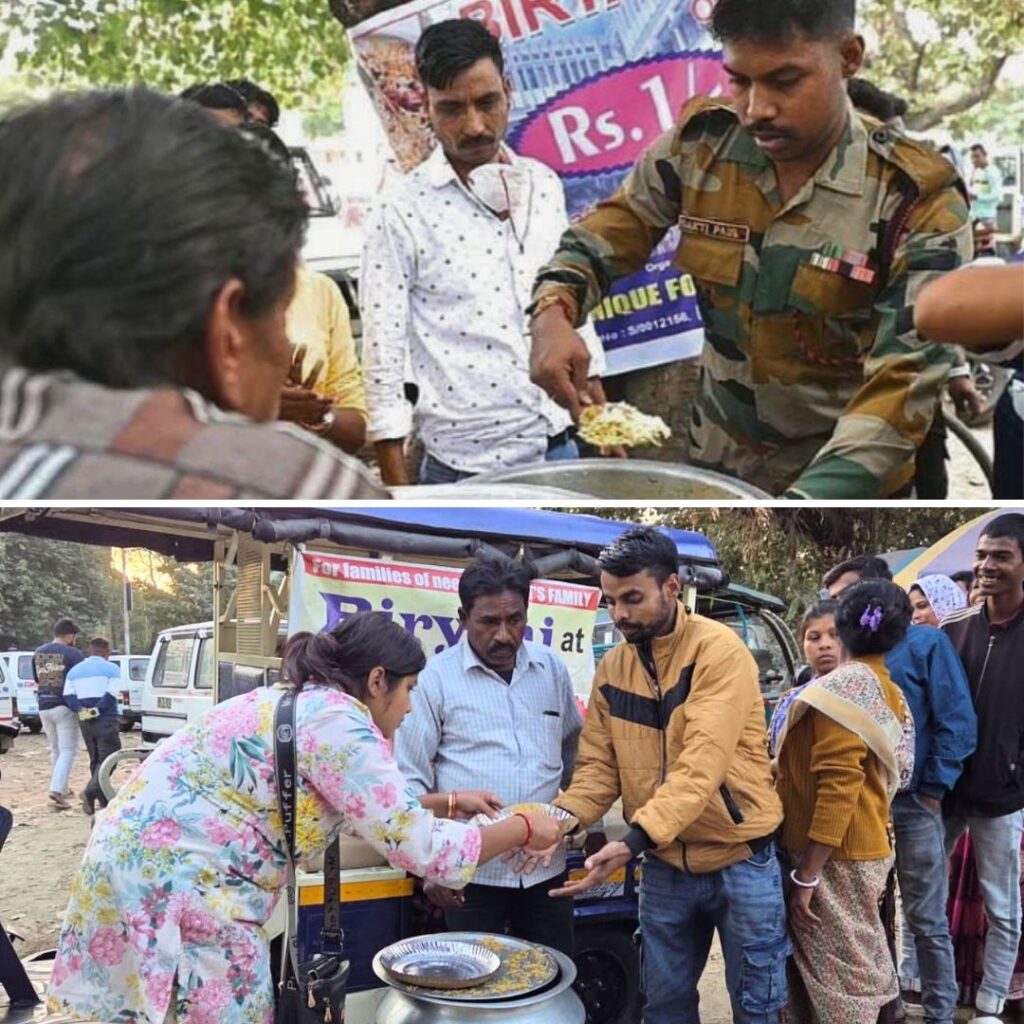The Bombay High court on Thursday capped reservation for Maratha community in government jobs and education at 13 per cent. The HC, upholding the constitutional validity of the reservation for the community, reduced the percentage from 16 per cent to 12 per cent in employment and 13 per cent in education.
Last year, on November 30, 2018, after recommendations from the State Backward Classes Commission, state assembly had unanimously passed a bill giving 16 per cent reservation for Marathas under the socially and educationally backward category.
The 12 per cent reservation for the Maratha community will be in addition to the current 52 per cent reservation in case of public employment for backward classes – which is way past the 50 per cent ceiling set by the Supreme Court.
The Division Bench consisting Justices Ranjit More and Bharati Dangre, in its order, stated that under “exceptional and extraordinary circumstances” the 50 per cent ceiling can be exceeded. It was observed that the Maratha reservation was based on justifiable data submitted by the Backward Commission.
Petitions Challenging 16% Reservation
After the state assembly cleared the bill giving 16 per cent reservation for the Maratha community in June, several petitions challenging the quota as well a few supporting the bill, were filed in the High Court.
The petitions argued that the Maratha reservation was in violation of the SC order which stated that reservation in any state should not exceed 50 per cent.
Senior Advocate Arvind Datar appearing on behalf of a petitioner argued that the quota for Maratha is in violation of Article 15 (prohobition of discrimination on grounds of religion, race, caste, sex or place of birth) and Article 16 (equality of opportunity in matters of public employment) of the Indian Constitution.
Datar further argued that only the President can notify or de-notify a list for backward classes whether at the Central or in the state. And if the State decides to de-notify a category, the entire process of notification will have to take place again.
The SC Order
The Supreme Court hearing the case of M. R. Balaji And Others vs State Of Mysore on 28 September 1962, held that reservation for other backward classes should not exceed more than 50 per cent.
The apex court stated that care should be taken not to exclude admission to higher educational centres of deserving and qualified candidates of other communities. The SC judgement read, “Reservations under Arts. 15 (4) and 16 (4) must be within reasonable limits. The interests of weaker sections of society, which are a first charge on the States and the Centre, have to be adjusted with the interests of the community as a whole. Speaking generally and in a broad way, a special provision should be less than 50%. The actual percentage must depend upon the relevant prevailing circumstances in each case.”
The provision that reservation should not exceed 50 per cent was later supported by nine-judge SC bench hearing a petition filed by Indra Sawhney in 1992.
Soon after the government accepted the Mandal Commission report, which recommended 27% reservation for OBC candidates at all levels of its services, protests against the quota ensued across the country. Following which, Sawhney, seeking whether more than 50 per cent of the seats could be reserved or not, had filed the petition.
States Which Have Breached 50% Mark
Only state other than Maharashtra to have breached the 50 per cent mark is Tamil Nadu.
Tamil Nadu has 69 per cent reservation including one per cent for Scheduled Tribes, 18 per cent for the Scheduled Castes and 50 per cent for Other Backward Classes. The provision of 69 per cent provision is included in the Ninth Schedule – laws which are beyond the purview of judicial review, even if it violates fundamental rights enshrined in the Part III of the Constitution.
However, an eight-judge SC bench hearing the IR Coelho vs State Of Tamil Nadu upheld the authority of the judiciary to review any law, including those put in the Ninth Schedule. It stated that Ninth Schedule laws could be “open to attack on the ground that they destroy or damage the basic structure of the Constitution”.
Also Read: Maharashtra Assembly Approves 16% Reservation To Marathas, Taking The Overall Quota To 68%












